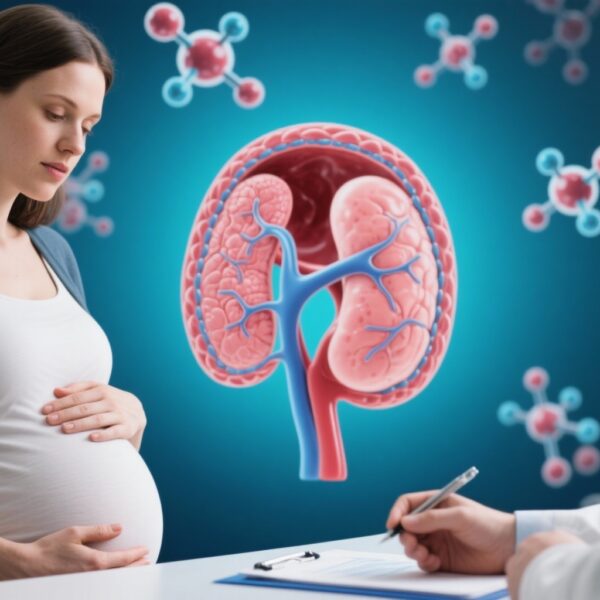Highlight
– The pilot PARTUM trial demonstrated successful recruitment and follow-up feasibility for a multi-national postpartum thromboprophylaxis study.
– Low-dose aspirin (81 mg) administered for 42 days postpartum was safe, with no major bleeding and no venous thromboembolism (VTE) events in the treatment group.
– One distal deep vein thrombosis occurred in the placebo group, suggesting a possible protective effect worthy of definitive evaluation.
– The trial highlights the urgent need for high-quality data to guide clinical decisions on thromboprophylaxis in postpartum patients at moderate risk of VTE.
Study Background and Disease Burden
Venous thromboembolism (VTE), comprising deep vein thrombosis and pulmonary embolism, remains a leading cause of maternal morbidity and mortality worldwide, with the postpartum period recognized as a high-risk phase. Although anticoagulant prophylaxis is well established for high-risk postpartum patients, guidance is less clear for those with moderate risk, including mild-to-moderate thrombophilia and multiple minor risk factors such as obesity, smoking, or immobilization during pregnancy.
Low-dose aspirin, widely used in pregnancy for preeclampsia prevention, has been proposed as a potentially safer and more accessible thromboprophylactic agent, but rigorous randomized evidence supporting its efficacy and safety for postpartum VTE prevention is lacking. Against this backdrop, the PARTUM pilot trial was designed to assess the feasibility of a large, randomized, double-blind study comparing daily low-dose aspirin to placebo in individuals with moderate VTE risk postpartum.
Study Design
This multi-national, randomized, double-blind, placebo-controlled pilot trial was conducted at seven centers across Canada, France, Ireland, and the Netherlands. Eligible postpartum individuals aged 18 years or older had at least two VTE risk factors (including mild-to-moderate inherited thrombophilia, antepartum immobilization, pre-pregnancy body mass index ≥30 kg/m2, smoking, or previous superficial vein thrombosis) and were randomized within 48 hours of delivery.
Participants were assigned in a 1:1 ratio to receive either daily low-dose aspirin (81 mg in Canada and the US; 80 mg in Europe) or placebo for 42 days postpartum. Clinical follow-up visits occurred at 6 weeks and 90 days postpartum. The primary feasibility outcome was recruitment rate, measured as participants per site per month, while secondary outcomes included clinical thrombotic events and bleeding complications analyzed on an intention-to-treat basis.
Key Findings
Between November 2, 2020, and June 19, 2023, 10,040 individuals were screened; 808 met eligibility criteria, and 257 (32%) consented and were enrolled (127 aspirin, 130 placebo). The median participant age was 34 years; 63% were White. The overall mean recruitment rate was 6.3 participants per site per month, demonstrating feasibility for a larger trial.
During the median follow-up of 91 days (interquartile range 89-96), no VTE events occurred in the aspirin group, whereas one participant in the placebo group developed a distal deep vein thrombosis (absolute risk difference -0.82%, 95% CI -2.42 to 0.78). Although the event rate was low, this observation suggests the potential for aspirin to reduce postpartum VTE risk.
Safety outcomes showed no major bleeding events in either group. Clinically relevant non-major bleeding was observed in 3 participants in the aspirin arm (2%) and 1 participant in the placebo arm (1%), with an absolute risk difference of 1.66% (95% CI -1.54 to 4.86), indicating an acceptable safety profile. Serious adverse events occurred in 4% of participants and 4% of infants, with no treatment-related deaths.
Expert Commentary
The PARTUM pilot trial provides important foundational data confirming the feasibility of conducting a rigorous, large-scale international randomized trial to evaluate low-dose aspirin’s role in postpartum VTE prevention among moderate-risk patients. The absence of major bleeding and low VTE event rate in the aspirin group is reassuring, although the study was not powered for definitive efficacy conclusions.
Experts advocate that while pharmacological thromboprophylaxis is standard for high-risk postpartum patients, many moderate-risk individuals currently lack clear guidance. Aspirin’s low cost, oral administration, and favorable safety profile potentially offer a practical alternative to low molecular weight heparin, which has disadvantages including injection route and cost. Nevertheless, larger pivotal trials with sufficient power are essential to establish aspirin’s efficacy definitively.
Limitations of the pilot study include its modest sample size, limiting statistical power for clinical outcome differences. Generalizability might be constrained by demographic homogeneity (predominantly White participants) and regional practice variability. Further research should aim to incorporate diverse populations and correlate risk stratification with mechanistic biomarker studies.
Conclusion
The pilot PARTUM trial confirms that a global, randomized, double-blind trial comparing low-dose aspirin to placebo for postpartum VTE prevention in moderate-risk patients is feasible. Initial safety data are encouraging, and a definitive, adequately powered phase III trial is justified to provide high-quality evidence guiding postpartum thromboprophylaxis. Such evidence could significantly influence clinical practice by potentially offering a simpler, safer alternative to current anticoagulant strategies, ultimately reducing maternal morbidity and mortality from postpartum VTE.
References
1. Skeith L, Malinowski AK, El-Chaâr D, et al. Low-dose aspirin versus placebo in postpartum venous thromboembolism: a multi-national, pilot, randomised, placebo-controlled trial. Lancet Haematol. 2025;12(2):e109-e119. doi:10.1016/S2352-3026(24)00338-7.
2. James AH. Venous thromboembolism in pregnancy. Arterioscler Thromb Vasc Biol. 2009;29(3):326-331. doi:10.1161/ATVBAHA.108.179605.
3. Bates SM, Greer IA, Middeldorp S, et al. VTE, thrombophilia, antithrombotic therapy, and pregnancy: Antithrombotic Therapy and Prevention of Thrombosis. American College of Chest Physicians Evidence-Based Clinical Practice Guidelines. Chest. 2012;141(2 Suppl):e691S–e736S. doi:10.1378/chest.11-2300.




Appreciate it for sharing the information with us.